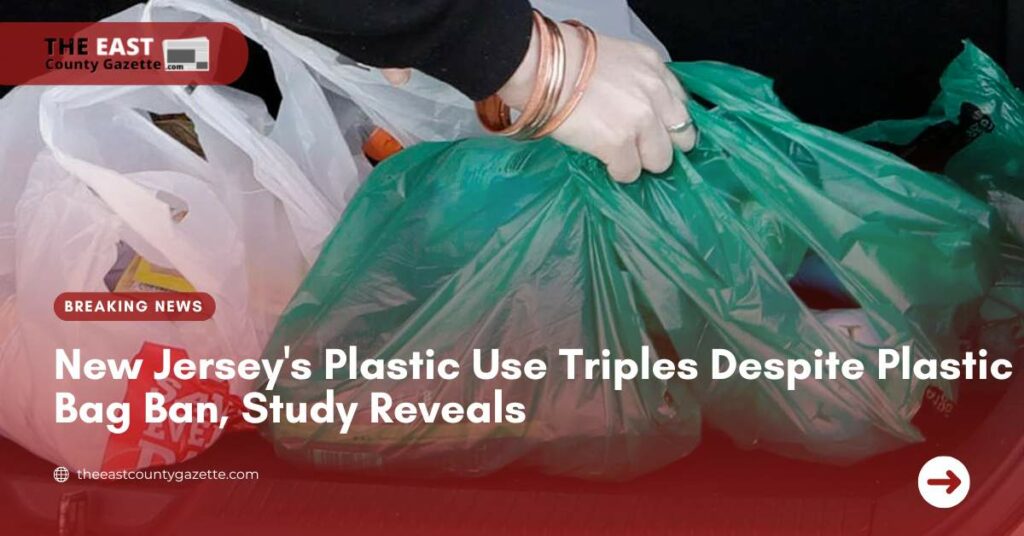New Jersey banned single-use plastic bags in 2022, aiming to prevent plastic pollution and promote environmental sustainability.
This legislative action was part of a larger initiative to address the state’s growing worries about plastic trash.
However, a recent analysis by the Freedonia Report, a part of MarketResearch.com, found an unexpected result: plastic usage in New Jersey has increased since the ban was implemented.
New Jersey’s Ban Boosts Sales of Reusable Bags
While the ban successfully reduced the usage of single-use plastic bags by 60%, it also resulted in an increase in the use of alternative plastic bags.
Consumers opted to plastic reusable bags as a replacement for their grocery and shopping needs. These bags, which are generally composed of non-woven polypropylene, are rarely recycled in the United States and contain little recycled elements.
This adjustment greatly raised the state’s total plastic use. Retailers were also affected, with some reporting increased sales as a result of the need for alternative bags.
An in-depth investigation indicated that supplying these alternate bags might increase a typical New Jersey supermarket store’s profits by $200,000. For larger retail chains, this profit may reach $42 million across all New Jersey locations.
New Jersey’s plastic consumption triples after plastic bag ban enacted:
New Jersey’s plastic consumption triples after plastic bag ban enacted, study shows https://t.co/Ig80Hxv7cM
— USA TODAY (@USATODAY) January 26, 2024
Rethinking Plastic Ban Strategies
The situation in New Jersey raises serious concerns regarding the effectiveness of plastic restrictions in combating environmental degradation.
The National Conference of State Legislatures and other environmental experts say that, while such prohibitions aim to reduce pollution and emissions from plastic production, the hunt for alternatives may result in more pollution owing to the manufacturing processes of these new products.
A research in Environmental and Resource Economics also found that the prohibition led to an increase in the purchasing of other plastic bags, such as rubbish bags.
The study predicted an average monthly increase of 127 pounds of purchased plastics per retailer following the prohibition. These findings point to the need for a more comprehensive approach in legislation and consumer behavior to really address the issue of plastic pollution.
Read some more New Jersey news:
- Governor Murphy Signs Bill to Simplify Expungement in New Jersey
- New Jersey Announces Comprehensive Changes to Liquor License Laws
- New Jersey Residents Set to Receive $1,500 Stimulus Checks through ANCHOR Tax Relief Program 2024
In Conclusion,
New Jersey’s experience with the plastic bag ban paints a mixed picture of environmental policy and its practical repercussions.
It emphasizes the importance of comprehensive solutions that take into account the entire product lifetime and consumer behavior in order to effectively reduce plastic waste and the environmental impact.

